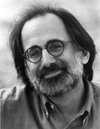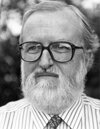Lectures
|
Joseph Horowitz
Artists in Exile: How Refugee Immigrants Impacted on the American Performing Arts Saturday October 21, 2011 at 3:00pm Pyle Center - VandeBerg Auditorium (Room 121) |
 "Artists inExile" deepens our understanding of U.S. cultural history in the first half of the twentieth century by focusing on the European exiles from war and revolution who helped shape this seminal epoch. Case studies, drawn from the worlds of dance,music, film, and the stage, illuminate not only the creative possibilities but also the sometimes debilitating challenges that arose when Old World sensibilities met New World realities. Particularly telling is his analysis of how Russians accommodated themselves more easily to the American scene than did Germans, thereby realizing unheard-of possibilities. "Artists inExile" deepens our understanding of U.S. cultural history in the first half of the twentieth century by focusing on the European exiles from war and revolution who helped shape this seminal epoch. Case studies, drawn from the worlds of dance,music, film, and the stage, illuminate not only the creative possibilities but also the sometimes debilitating challenges that arose when Old World sensibilities met New World realities. Particularly telling is his analysis of how Russians accommodated themselves more easily to the American scene than did Germans, thereby realizing unheard-of possibilities.
|
|
|
 Borrowing a theme from Marshall McLuhan, who wrote, "I think of art, as its most significant, as a DEW line, a Distant Early Warningsystem that can always be relied on to tell the old culture what is beginning to happen to it," Mr. McGlaughlin considers examples of DEW in music ranging from the Renaissance through the present day. |
|
Anthony Tommasini Concert Music Today: A State of the Union Address Saturday March 24, 2012 at 3:00pm Wisconsin Union Theater |
 In his talk, Mr. Tommasini ranges widely on concert music today, addressing such topics as: what's going on with audiences, performing arts institutions, and their boards; how contemporary music is faring; who is educating audiences; and the responsibilities of those based in universities and those working in journalism. |
|
Tully Potter Four Famous Belgians: The Quatuor Pro Arte Saturday April 21, 2012 at 3:00pm Chazen Museum of Art |
 Flourishing from 1912 to 1939, the great Belgian Quatour Pro Arte excelled in performing Franco-Belgian music, contemporary works, and the Viennese classics. It metamorphosed seamlessly into the Pro Arte Quartet, transitioning during the 1940s, through the accident of war, from an independent European quartet to an American ensemble shaping the first residency in an institution of higher learning. This talk, concentrating on the all-Belgian group, will be lavishly illustrated with historic recordings. Flourishing from 1912 to 1939, the great Belgian Quatour Pro Arte excelled in performing Franco-Belgian music, contemporary works, and the Viennese classics. It metamorphosed seamlessly into the Pro Arte Quartet, transitioning during the 1940s, through the accident of war, from an independent European quartet to an American ensemble shaping the first residency in an institution of higher learning. This talk, concentrating on the all-Belgian group, will be lavishly illustrated with historic recordings.
|

